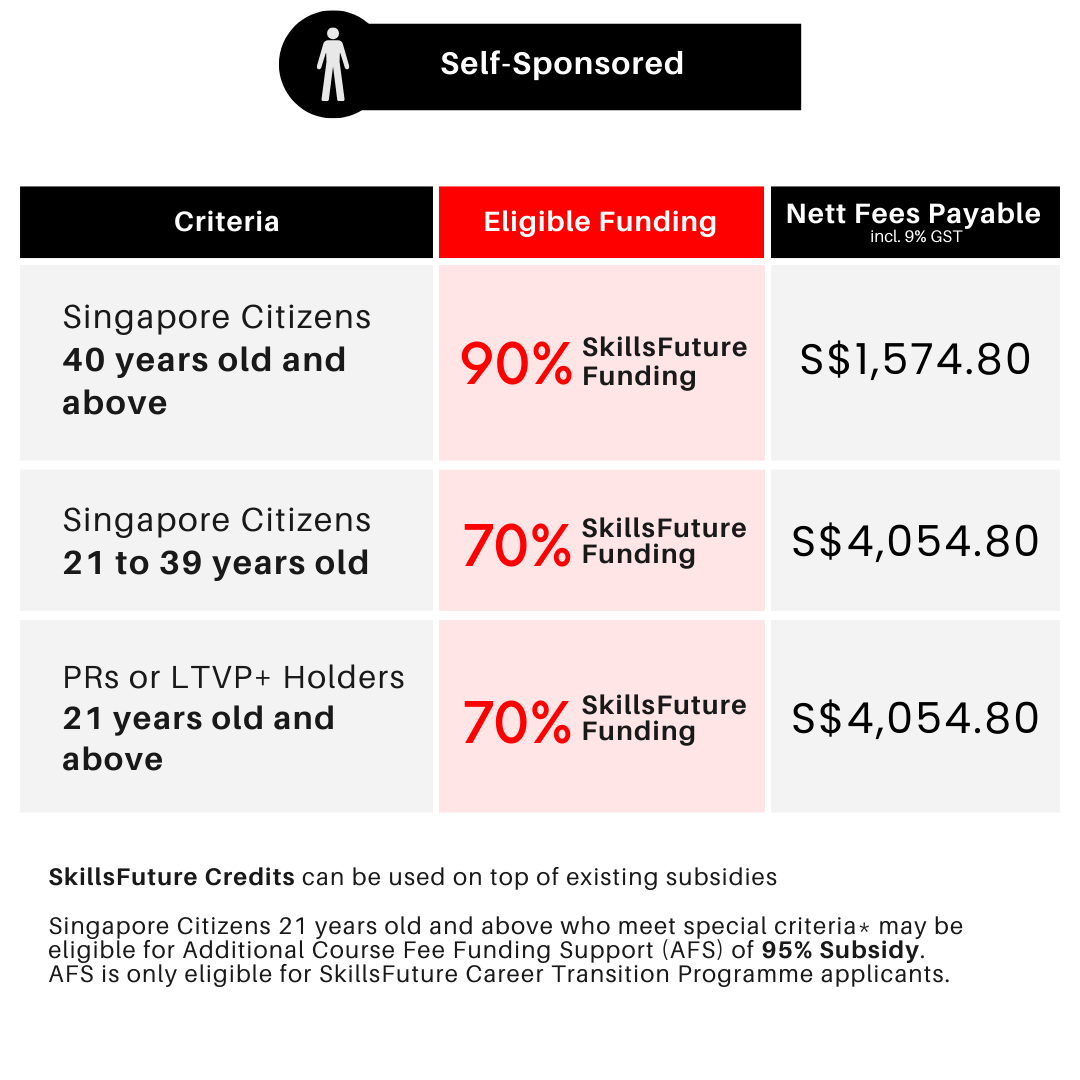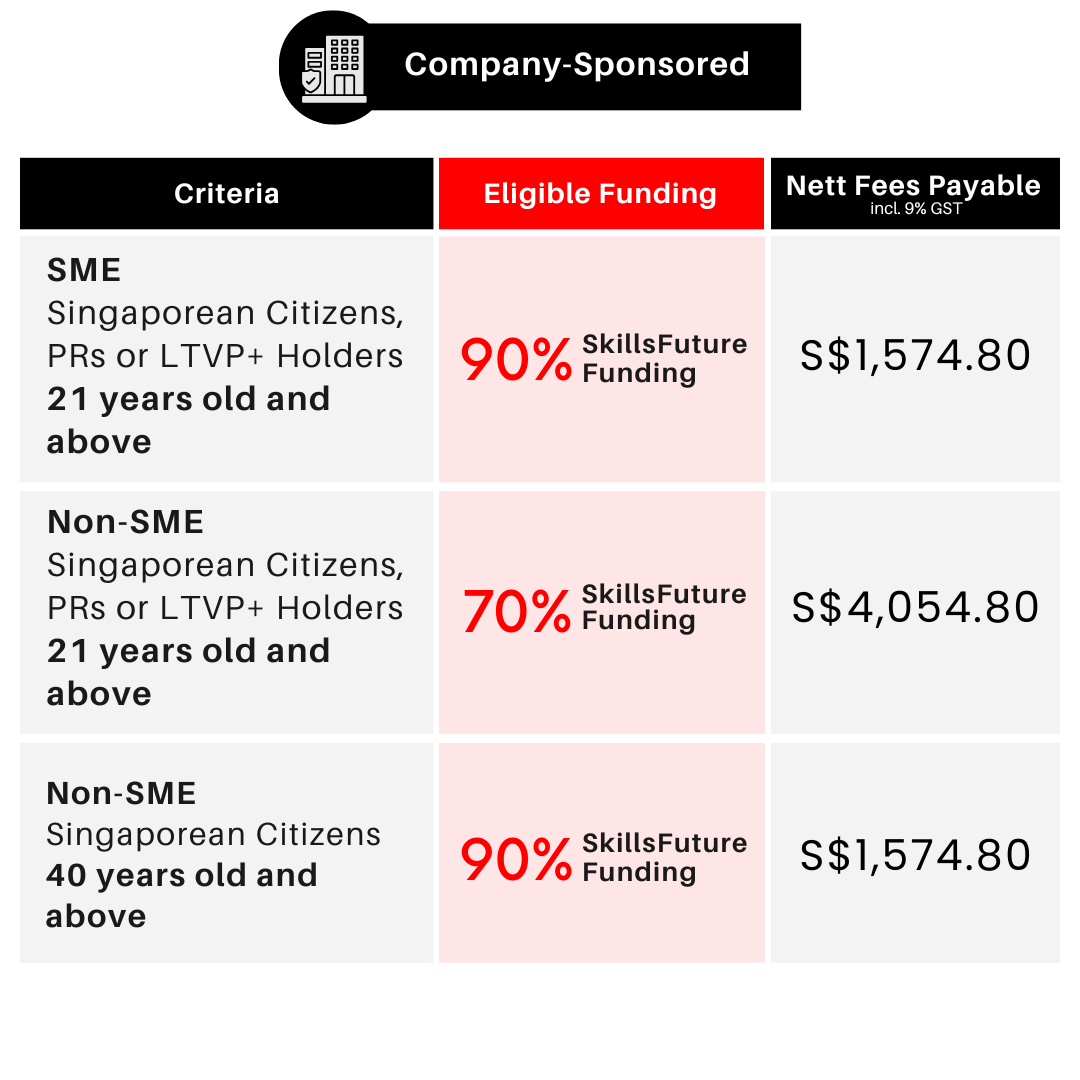The Diploma in IT Infrastructure and Operations (IIO) program is designed to provide advanced knowledge and practical skills for managing and optimising IT infrastructure.
Comprising eight modules, including a capstone project, the program covers a wide range of topics such as IT operations management, networking fundamentals, server administration, cloud computing, cybersecurity, project management, infrastructure automation, and disaster recovery planning.
Participants will gain expertise in enterprise architecture, infrastructure planning, security assessments, and IT project management. Through hands-on lab sessions, group discussions, case studies, and problem-based learning, participants will develop the skills necessary to lead and innovate in IT infrastructure and operations. Upon completion, participants will be equipped to conduct vulnerability assessments, design resilient IT infrastructures, and manage complex IT projects effectively.
Enrolment Requirement:
To apply for the Diploma in Infocomm Technology (Infrastructure and Operations) Programme, you should possess one of the following qualifications or meet one of these criteria:
Basic computer literacy and an advanced understanding of IT Infrastructure and Operations concepts are required.
All Applicants will go through pre-enrolment screening process.
Application Documents Required:
These documents will be reviewed as part of the screening process.
Assessment Method:
Written assessment (i.e., Short Questions & Answers & Case study) & Individual Project Assignment.
 Training led by practitioners with experience in the industry
Training led by practitioners with experience in the industry
 Comprehensive, up-to-date curriculum and courseware
Comprehensive, up-to-date curriculum and courseware
 Real-world hands-on projects
Real-world hands-on projects
 Career advisory and resources support
Career advisory and resources support
In the rapidly evolving digital landscape, the backbone of any successful organisation is its IT infrastructure and operations. This comprehensive course is designed to equip learners with the extensive knowledge and skills necessary to lead and innovate in the field of IT Infrastructure and Operations. Emphasising practical management strategies, clear objectives, and thorough maintenance practices, this course covers the crucial components of a robust IT framework, including storage solutions, backup techniques, and cloud technology.
By the end of this course, you will possess a comprehensive understanding and proficiency in various facets of IT infrastructure and operations, including recognising functions, analysing components, distinguishing operational environments, discussing management functions, evaluating network design and security, managing servers and hardware, virtualisation, storage technologies, data management principles, cloud computing, IT service management practices, incident resolution methodologies, and overall ITSM lifecycle.
The Enterprise Architecture and Design course explores the foundations of enterprise architecture, from core principles and framework structures to development methods tailored to organisational needs. Learn to design and analyse architectures using industry tools and techniques, and understand the role of governance in ensuring effective implementation and oversight.
By the end of the module, you will demonstrate a thorough understanding of enterprise architecture frameworks, including core principles, structural layout, and key components. You will be able to transition from a foundational architecture to one tailored to specific organisational needs, apply reusable architecture components, utilise tools and methods for constructing enterprise architectures, and recognise the significance of governance and exception-handling processes in the overall architecture development lifecycle.
The IT Infrastructure Planning & Optimisation course equips participants with the skills to plan, design, and optimise efficient IT infrastructures. Covering strategic design, capacity planning, and performance optimization, the course prepares learners to develop scalable and cost-effective infrastructure solutions, supporting business growth and innovation.
By the end of the module, you will demonstrate proficiency in infrastructure planning, design, and implementation within organisational contexts, including stakeholder analysis, architecture selection, virtualisation, and cloud deployment. You will also possess skills in evaluating and implementing IT security measures, understanding service delivery frameworks such as ITIL and COBIT, optimising system and network performance, and effectively documenting and communicating complex infrastructure designs for cross-functional teams.
This intensive course is tailored for professionals aiming to master IT Disaster Recovery and Business Continuity. It delves into advanced concepts, practical problem-solving methodologies, and the development of diagnostic skills essential for effectively managing and responding to IT-related disruptions. This course emphasises a collaborative learning experience and hones effective communication skills, making it ideal for IT professionals, project managers, risk managers, and those involved in crisis management and organisational resilience.
By the end of the module, you will demonstrate proficiency in business continuity principles, conducting risk assessments, creating adaptable plans, integrating disaster recovery considerations, and understanding technology’s impact on continuity planning, while also discussing international standards and compliance requirements.
The Advanced IT Security and Cybersecurity course equips professionals with expertise in advanced threat detection, vulnerability assessment, and ethical hacking. Covering key frameworks like MITRE ATT&CK, the course offers hands-on experience with cutting-edge tools, real-world simulations, and case studies to prepare participants for tackling modern cyber threats and implementing robust security strategies.
By the end of the module, you will possess advanced knowledge and skills in information security and cybersecurity, including analysis of security controls, threat vectors, ethical hacking principles, and vulnerability scans, enabling them to effectively assess and address security concerns within organisational contexts.
The IT Project Management course provides essential knowledge on managing IT projects, covering methodologies and techniques for project planning, execution, and stakeholder communication. By course end, participants will be equipped to apply best practices and lead successful IT projects within budget and schedule.
By the end of the module, you will demonstrate proficiency in project management fundamentals, including stakeholder identification, project planning and execution, scope and schedule management, risk assessment and mitigation, and adherence to project closure procedures, facilitating effective project implementation within organisational contexts.
The IT Infrastructure Automation and Orchestration course teaches essential skills for automating cloud deployments using Azure PowerShell cmdlets. Participants will learn to provision Azure services, automate management tasks, and build virtual environments, gaining the expertise to optimise IT operations with controlled, auditable, and scalable automation solutions.
By the end of the module, you will demonstrate proficiency in Infrastructure as Code (IaC) concepts, including differentiation between orchestration and automation, and apply essential skills in scripting with PowerShell for both On-Premise and Cloud environments, enabling setup and management of IaC implementations through ARM templates, Azure Blueprints, and Desired State Configuration for Windows Machines.
The Capstone Project module comprises five learning units that aim to equip the trainees with the essential skills and knowledge to conduct a thorough vulnerability assessment and penetration testing for a designated small business or organisation.
Pleasant and friendly trainers to guide you in a learning environment. Receptionist is helpful in understanding the type of course one needs and helpful in assisting on the necessary link up for the correct class.
The venue is pleasant and provides a good coffee machine with some aromatic coffee such as mocha, cappuccino etc. Reception staff are very helpful and friendly. The trainers whom I have encountered are very proficient in their topics. They are also friendly supporters in facilitating our learning process.
A great training centre to upgrade, learn and enroll in SkillsFuture courses. Great trainers!




This Diploma equips you with the foundational knowledge and practical skills needed for a career in IT. You’ll gain a solid understanding of IT infrastructure functions, IT operations management, networking fundamentals, server and system administration, storage and data management, cloud computing, and IT service management (ITSM).
This diploma is ideal for individuals who have completed our Certificate and Advanced Certificate in Infocomm Technology (Infrastructure & Operations) or have prior experience or foundational knowledge in IT infrastructure and operations.
This course is ideal for individuals who want to launch a career in IT infrastructure and operations. It’s also suitable for those looking to enhance their existing IT knowledge and skills to advance their careers in this field.
Yes, the Diploma includes hands-on activities and a Capstone Project at the end of this course. This is to solidify your understanding of the concepts and allow you to practice your newly acquired skills in real-world scenarios.
This diploma qualifies you for various entry-level and mid-level IT infrastructure and operations roles, such as IT Support Specialist, Network Support Technician, System Administrator, or Help Desk Analyst.
Yes, you may be eligible for up to 95% subsidies if you are Singapore Citizen, Singapore Permanent Resident, or holding a Long Term Visit Pass Plus.
Please see the course fees and funding section above to determine your funding eligibility or get in touch with our team for further clarification.
The SkillsFuture Career Transition Programme (SCTP) supports mid-career individuals in acquiring industry-relevant skills to improve employability and pivot to new sectors or job roles.
You can choose to study part-time or full-time, depending on what suits you best, and the programme lasts between 3 to 12 months.
This ensures individuals like you have the opportunity to upskill or re-skill while effectively preparing for successful career transitions.
For more information on SkillsFuture Career Transition Programmes (SCTP), visit the MySkillsFuture website.
Yes, the SkillsFuture Career Transition Programme (SCTP) is a government initiative in Singapore designed to assist mid-career individuals in acquiring new skills and knowledge to facilitate a career transition.
This programme is geared towards individuals who wish to switch industries or occupations due to changes in the job market, technological advancements, or personal career goals.
| Diploma in Infocomm Technology (Infrastructure & Operations) | |
|---|---|
| Fee Excluding GST | $12,400.00 |
| For Singaporeans > 21 (Excl. GST) | $3,720.00 |
| For Singaporeans > 40 (Excl. GST) | $1,240.00 |
| For Foreigners (Excl. GST) | $12,400.00 |

Graduate with a recognised certificate

Experience real-world application through hands-on projects with real project partners

Learning materials are vetted by our Dean to ensure relevant and up-to-date curriculum

Gain one-on-one coaching by our mentors when completing your capstone project

Personalised career advise and support to assist in your job search

Trainers are hand-picked industry experts who are certified trainers, offering real-world insights


Bachelor's of Computing in Information System National University of Singapore


Bachelor's of Computing in Information System National University of Singapore


Bachelor's of Computing in Information System National University of Singapore


Bachelor's of Computing in Information System National University of Singapore
If you’re thinking about taking your next step but are still unsure of which programme suits your needs best, our programme consultants are available to guide you through your learning journey.
Speak to us now to find out more!

